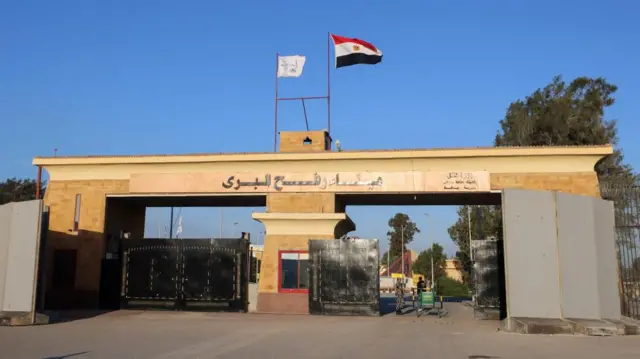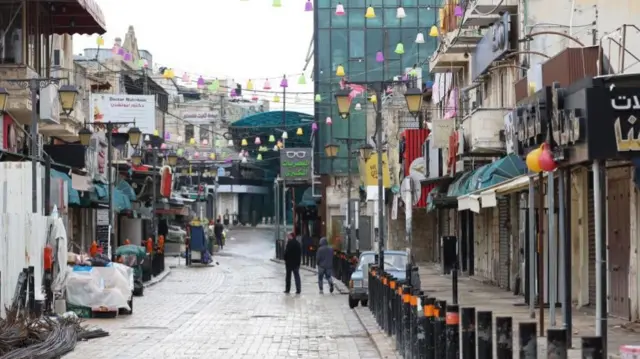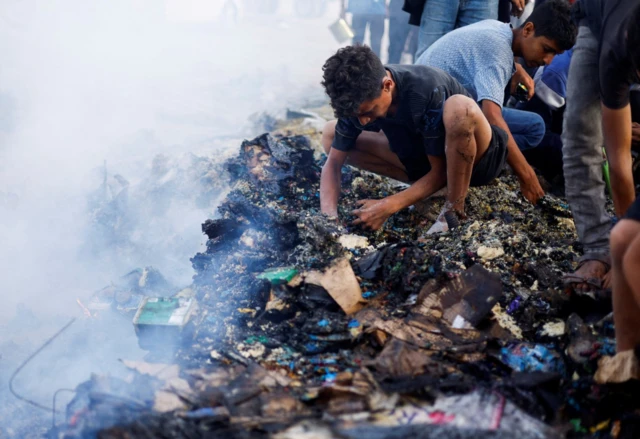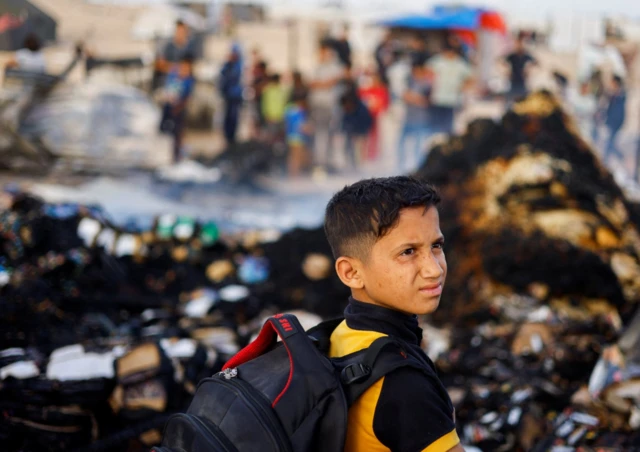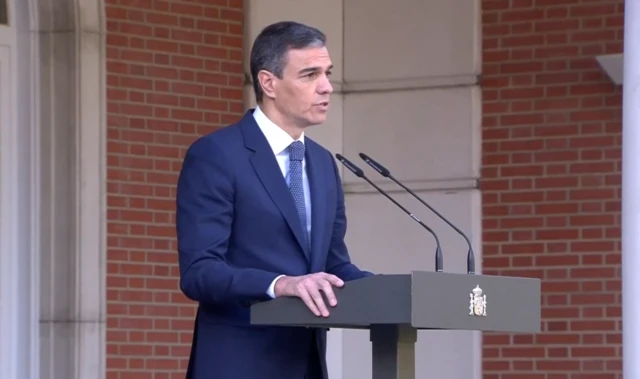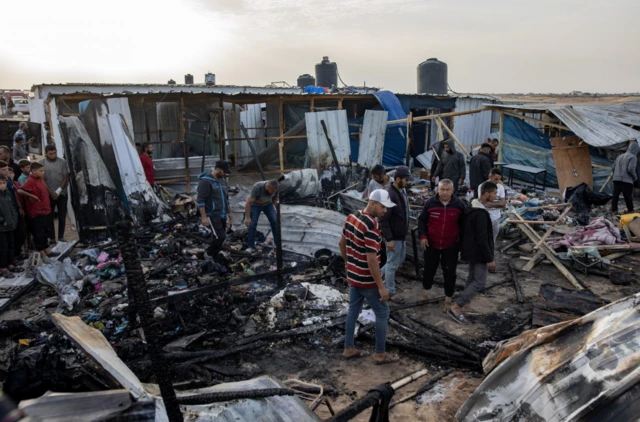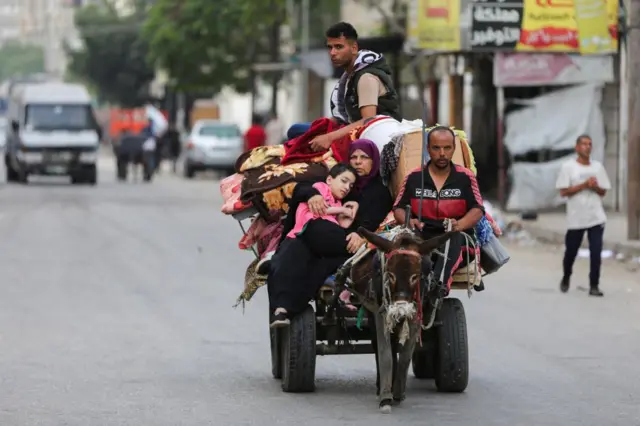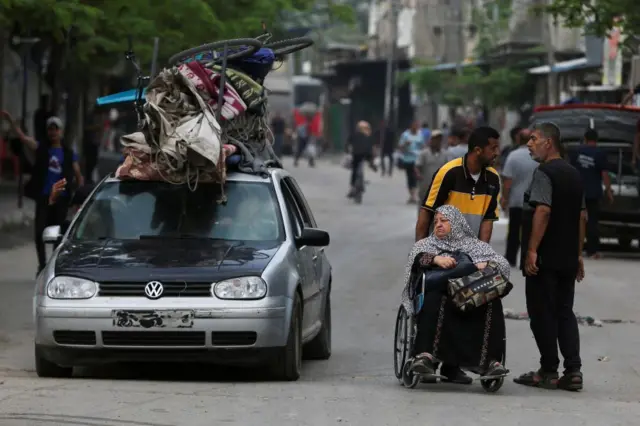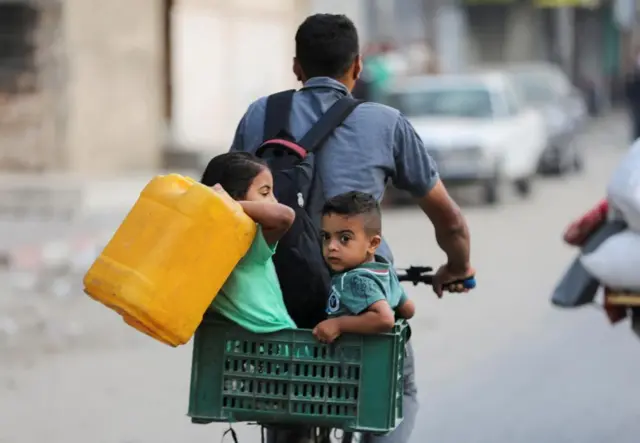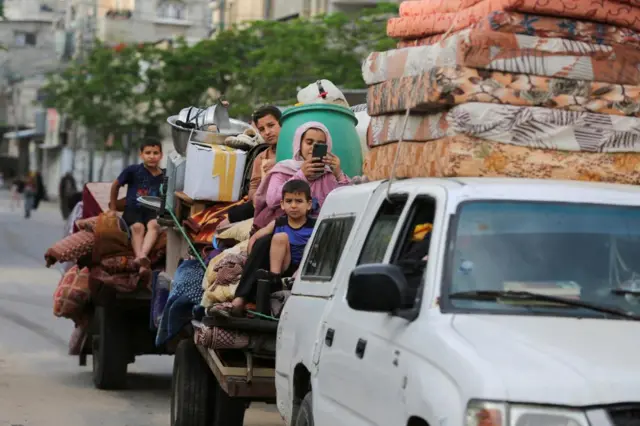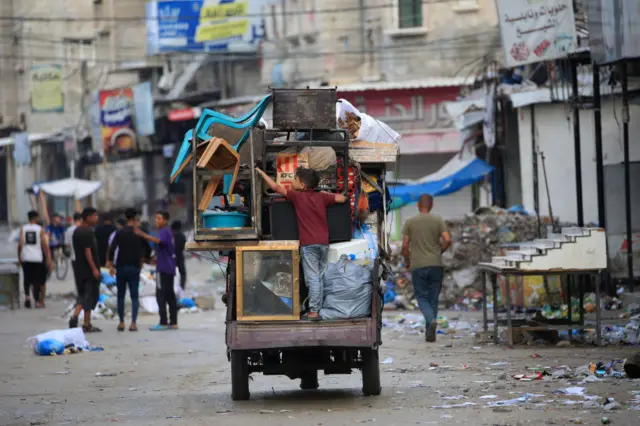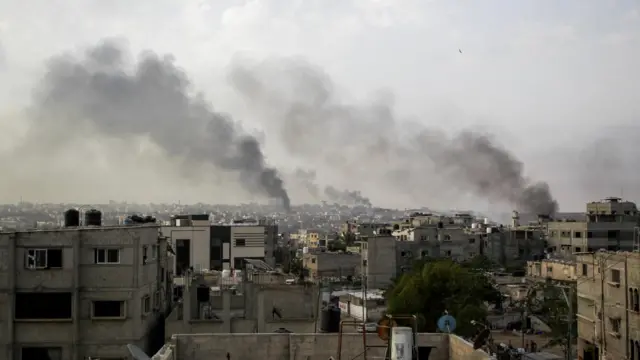Ireland officially recognises Palestinian statepublished at 12:45 BST 28 May 2024
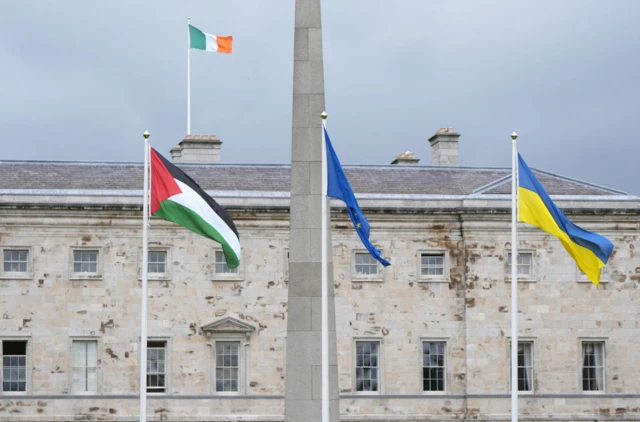 Image source, PA Media
Image source, PA MediaIreland is the latest country to officially recognise a Palestinian state, joining Norway and Spain who did the same this morning.
"The government recognises Palestine as a sovereign and independent state and agreed to establish full diplomatic relations between Dublin and Ramallah," a statement said.
An Irish ambassador will be appointed to the state of Palestine "along with a full Embassy of Ireland in Ramallah", it said.
Irish PM Simon Harris said that a two-state solution "is the only way for Israel and Palestine to live side by side in peace and security".
This morning he said there was a "new despicable and disgusting trend" where the Israeli PM Benjamin Netanyahu describes deaths of Palestinian civilians "a 'tragic mistake'".
Harris was speaking after Israeli strikes killed on a refugee camp killed at least 45 people in Rafah on Sunday, which Netanyahu said was a “tragic mishap” but vowed to continue the war against Hamas.
"April's 'tragic mistake' was the bombing to death of aid workers trying to provide food to starving mouths, May's 'tragic mistake', yesterday, was children being blown to death while seeking protection in a displaced centre," Harris said.
"What will June's 'tragic mistake' be? And more importantly what does the world now intend to stop it happening?"


